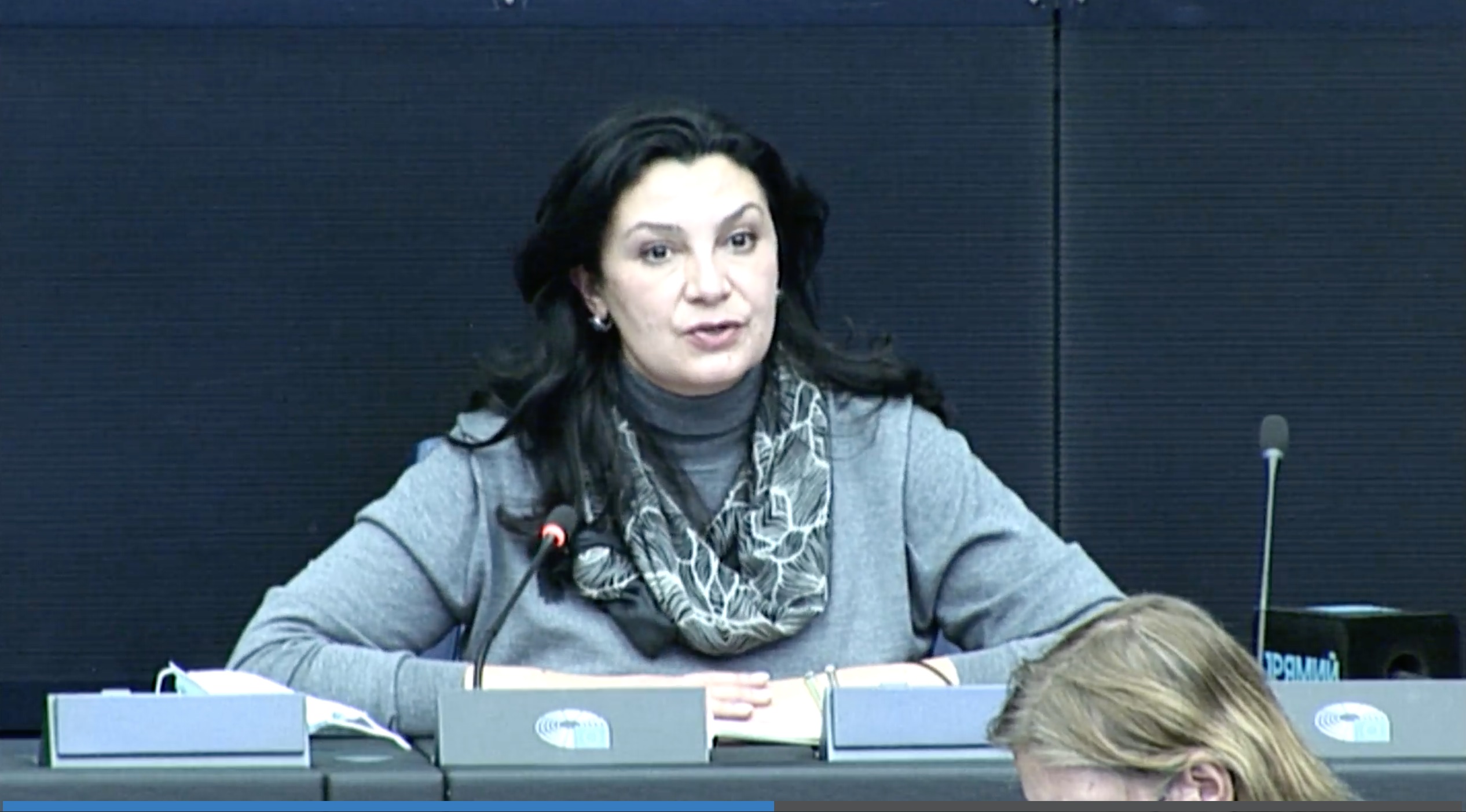
Ivanna Klympush-Tsintsadze is convinced that sanctions against the aggressor are important, but assistance to Ukraine at other levels is equally important: “I am convinced that now it is very important to lift all embargoes, including hidden ones, on arms sales to Ukraine, because Ukraine has to be capable to protect itself. Europe must be united in preventing the launch of Nord Stream-2. There are many more things — from the switching off of the Russian Federation from SWIFT and ending with personal sanctions that you can adopt”.
The Chair of the Committee also called on MEPs to help Ukraine strengthen its internal resilience: “It is important to help us transform the country, transformation is never easy. We have internal problems now, but we will overcome them, with your support and help”.
The High Representative of the European Union Josep Borrell, said that Russia did not want to talk to the European Union, it was using a strategy of dividing the Western world. He also mentioned his first visit to eastern Ukraine earlier this year and said he was very concerned about the situation in the Donetsk and Luhansk territories not controlled by Ukraine, which Russia was gradually moving away from Ukraine. According to Josep Borrell, the European Union is chanting calls for de-escalation and implementation of the Minsk agreements, but the Kremlin is far from implementing these agreements: “I repeat that there is no security in Europe without the security of Ukraine. If Russia wants to talk about its security, they can talk about anything. This is their business. But if they want to talk about Europe's security - our security - then, of course, we must be part of these negotiations. Well, if they want to talk about security, which includes Ukraine, then Ukraine must also be in these negotiations”.
Josep Borrell also stressed that the West should reject Russia's attempts to divide Europe into zones of influence, as this would be a rewriting of history and a return to the past.
Andrius Kubilius, Head of the Delegation of the European Parliament to the Euronest Parliamentary Assembly, is convinced that it is the timid position of the EU that is increasing the appetite of the Russian Federation: “Our weakness, not strength, provokes the Kremlin's aggression. Do you really think that at a time when the Kremlin is building up more than a hundred thousand troops on the border with Ukraine, we can talk about a dialogue with the Kremlin? Where is the point? Where are our red lines?”
The EU High Representative Josep Borrell said the EU is still working on sanctions. “We are working on different scenarios, because there may be different attacks. I don't think we need to focus on the worst, but the situation can be dangerous enough to require us to be constantly on the alert. Let's hope for the best, but be prepared for the worst,” he concluded.
More posts by topic
“News”
24 November 2025 13:08
20 November 2025 16:14
18 November 2025 12:57
13 November 2025 12:34
12 November 2025 12:31
09 November 2025 12:27
17 October 2025 16:54
15 October 2025 16:52
13 October 2025 16:50
10 October 2025 16:47